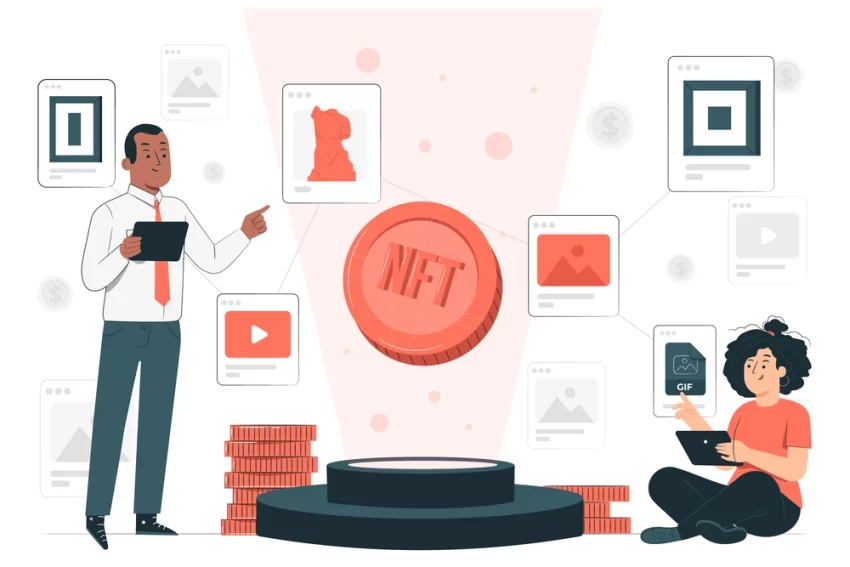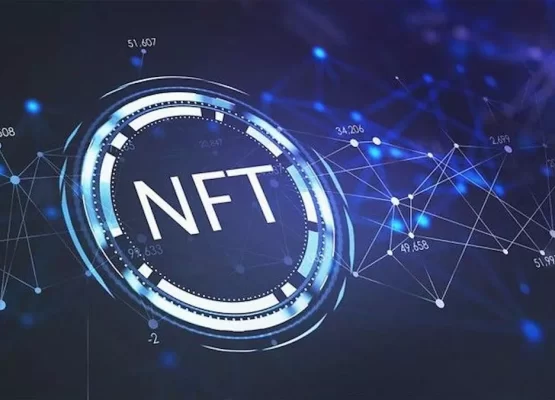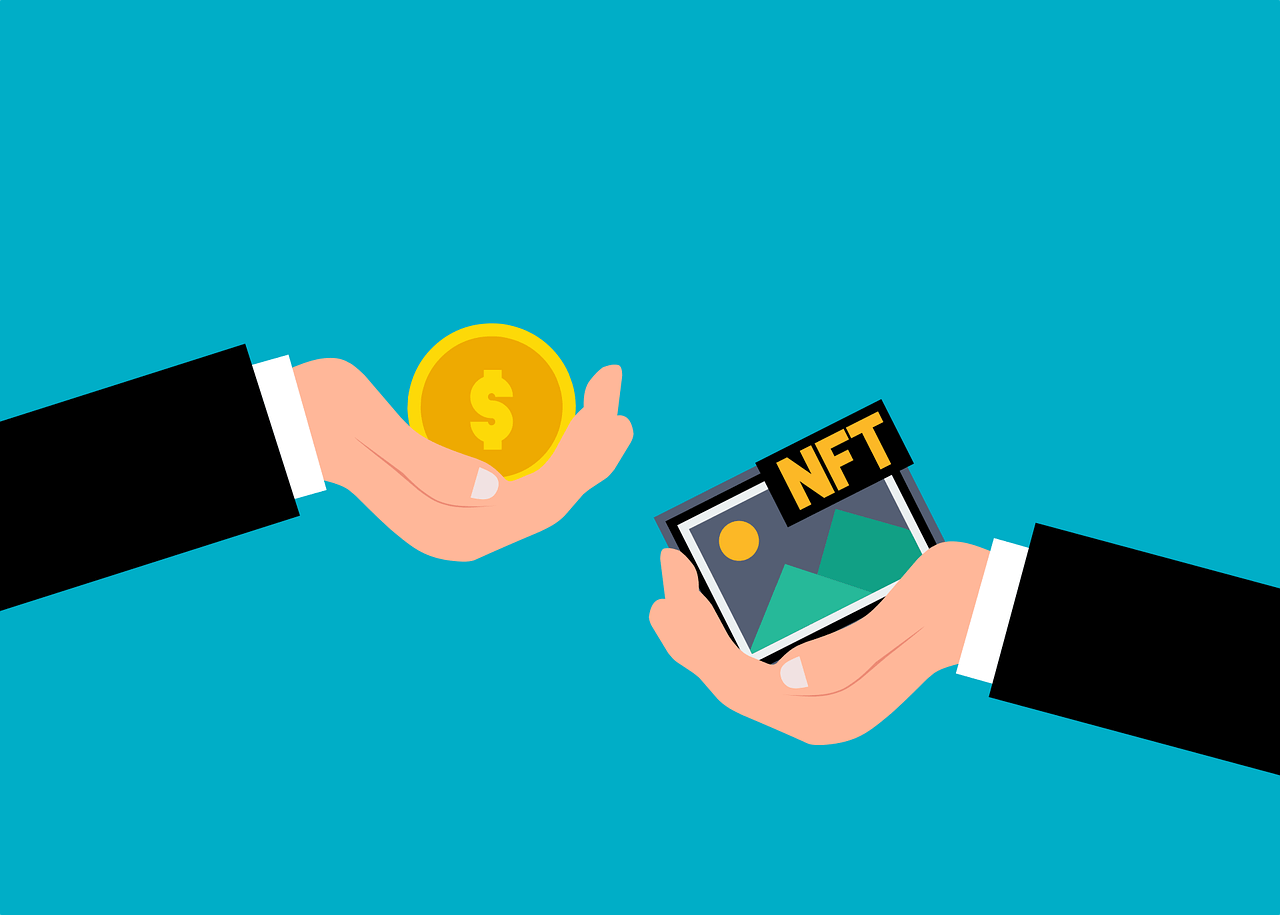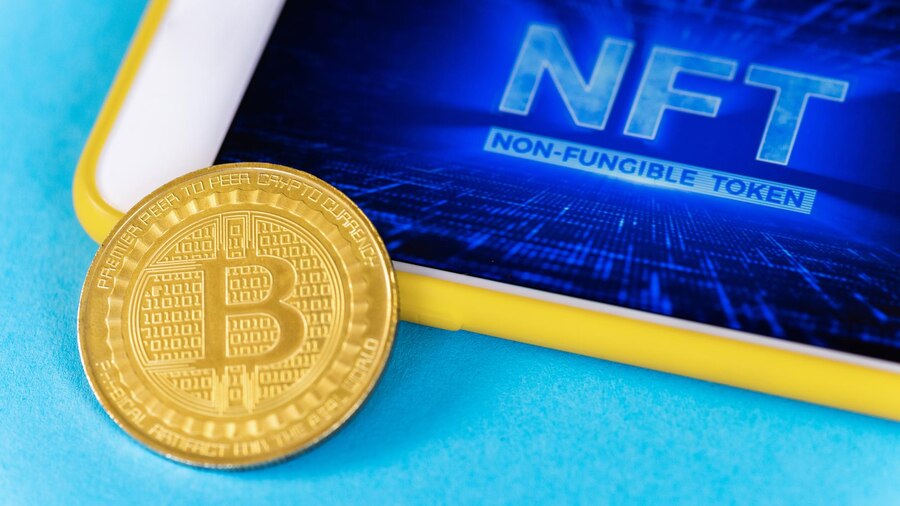Today the NFT sector is not only used for creating digital artworks and other assets but also it takes the position for promising digital assets. While artists enjoy the freedom of creating anything with NFTs. Investors and buyers can collect unique collections of artworks and NFT artists earn unbelievable sums of money. As we know, there should be an intermediary for both buyers and artists. Here, an NFT marketplace comes to the aid. Let us gain additional insights and look more into the process of the decentralized NFT marketplace.
What is a Decentralized NFT Marketplace?
A decentralized NFT marketplace is a trading platform where buyers and sellers can interact without any intermediary. Traditional centralised platforms like eBay have intermediaries which sometimes might offer difficulties and other issues for users. A decentralized NFT marketplace provides more security and control to the users. Every NFT has its own private key which is only accessible for the owners. This means that every NFT you own is more secure and no one can interfere with your accessibility. This is considered to be the biggest advantage of the decentralized NFT marketplace.
Development of Decentralized NFT Marketplace
Ideation: When it comes to creating a successful marketplace, the ideation phase plays a crucial role. This is where the initial idea for the marketplace is formed and refined.
Planning: This includes developing a detailed phase for the NFT marketplace. The plan should involve a timeline and an outline for the development process. You should also have potential advisors to help out with the development process. Budgeting is also an essential part of the planning process.
Design: The design phase focuses on creating a visually appealing user experience for the marketplace. This includes designing an intuitive interface that makes it easy for users to navigate and interact with the NFT marketplace.
Development: Implementation of the code takes place in this stage where you will be building the frontend and backend components together to develop a marketplace.
Deployment: After the development process of the marketplace. The deployment of the frontend and backend into their respective platforms.
Maintenance and upgrade: Updating and maintaining smart contracts is the most important aspect of the NFT marketplace. Making sure that security systems are strong to protect the marketplace is essential to make the platform work in the long run.
Essential Traits of Decentralized NFT Marketplace
A decentralized NFT marketplace has a lot of collections of art, music and other digital assets. This platform enables us to buy and sell NFTs within it. Assessing the decentralized NFT marketplace is so easy when the key features support search bars and other extra tools that are essential to the platform.
Smart contracts: A smart contract is a self-executing program used in an NFT marketplace. Only trusted transactions are permitted in smart contracts. Smart contracts are a form of script that automates the actions between two parties based upon previously agreed conditions.
IPFS (Interplanetary File system): This allows easy and secure storage of the NFT assets. It keeps track of all the files and documents that exist on the platform.
Consensus algorithm: The consensus algorithm plays a vital role in the decentralized NFT marketplace where it facilitates single agreements among nodes. Consensus algorithm upholds the unity of integrity and the authenticity of the NFTs.
Captivating storefront: This is considered to be the first segment to attract the user and hold the attention of the buyers. This includes having an attractive profile, creativity, and many other characteristics.
Interoperability: To transfer NFTs between various platforms, integration with the multiple blockchains is considered to be more important. There are multiple protocols which help to integrate with the various platforms.
Integration with DeFi: DeFi provides more liquidity and makes it easy for users to purchase assets and get loans. So, it is more important to integrate the decentralized NFT marketplace with various DeFi systems.
Perks of Decentralized NFT Markets
- With the wider audience for NFTs, creating your own decentralized NFT marketplace would add much value to your assets and trades between multiple platforms resulting in the rise of the NFT market.
- An NFT marketplace provides users with more authenticity and ownership of NFTs, making it highly attractive to the target audience.
- NFT marketplaces have diverse revenue streams, providing a large amount of collections and various other digital assets.
- As there is no intermediary, additional charges are exempted between the buyers and sellers. Traditional centralised marketplaces require additional costs between buying and selling. This is one big added advantage to the decentralized NFT marketplace.
- Companies can collaborate and partner with creators and sellers, making the audience more accessible for buying digital assets like artworks, paintings, music, and more.
- Decentralized marketplaces provide more security for every NFT. It serves as a trustable place where you can buy vast varieties of digital world items. All transactions are stored on the blockchain with more security.
Applications of the Decentralized NFT Platform
Decentralized NFT marketplace development has various applications in different industries like games, art, sports, and music.
Games: Play-to-earn games are introduced to explore gaming with a more enthusiastic view. These gaming items are made with the systematic procedure of blockchain security.
Real estate: NFT also plays an important role in real estate. Owning land for yourself in the metaverse is more exciting and it also helps to handle the business in the real world.
Music: More duplicate copies are uplinked in the internet which have no uniqueness or identity. NFT music reduces duplication and adds more uniqueness to the real artist and no one can fake it.
Sports: NFT marketplaces for sports are playing a significant role in the sports industry. Users can buy images of players and can purchase unique memorabilia.
Popular Decentralized NFT Marketplaces
There are lots of leading NFT marketplaces out there and they are growing rapidly. These marketplaces help users to understand the platform easily. Here we list out some leading NFT marketplaces.
- OpenSea
- Jump.Trade
- SuperRare
- Binance NFT
- Magic Eden
To Conclude
To finalize the research, most people have difficulties understanding the working process of the decentralized NFT marketplace. If you are looking for a reliable and to expertise in the NFT market there are so many tools available on the internet that are accessible to anyone. The NFT market has its own vast field that people can explore. Experts are developing future-focused NFT marketplaces and their significance is more valuable in the digital world.




